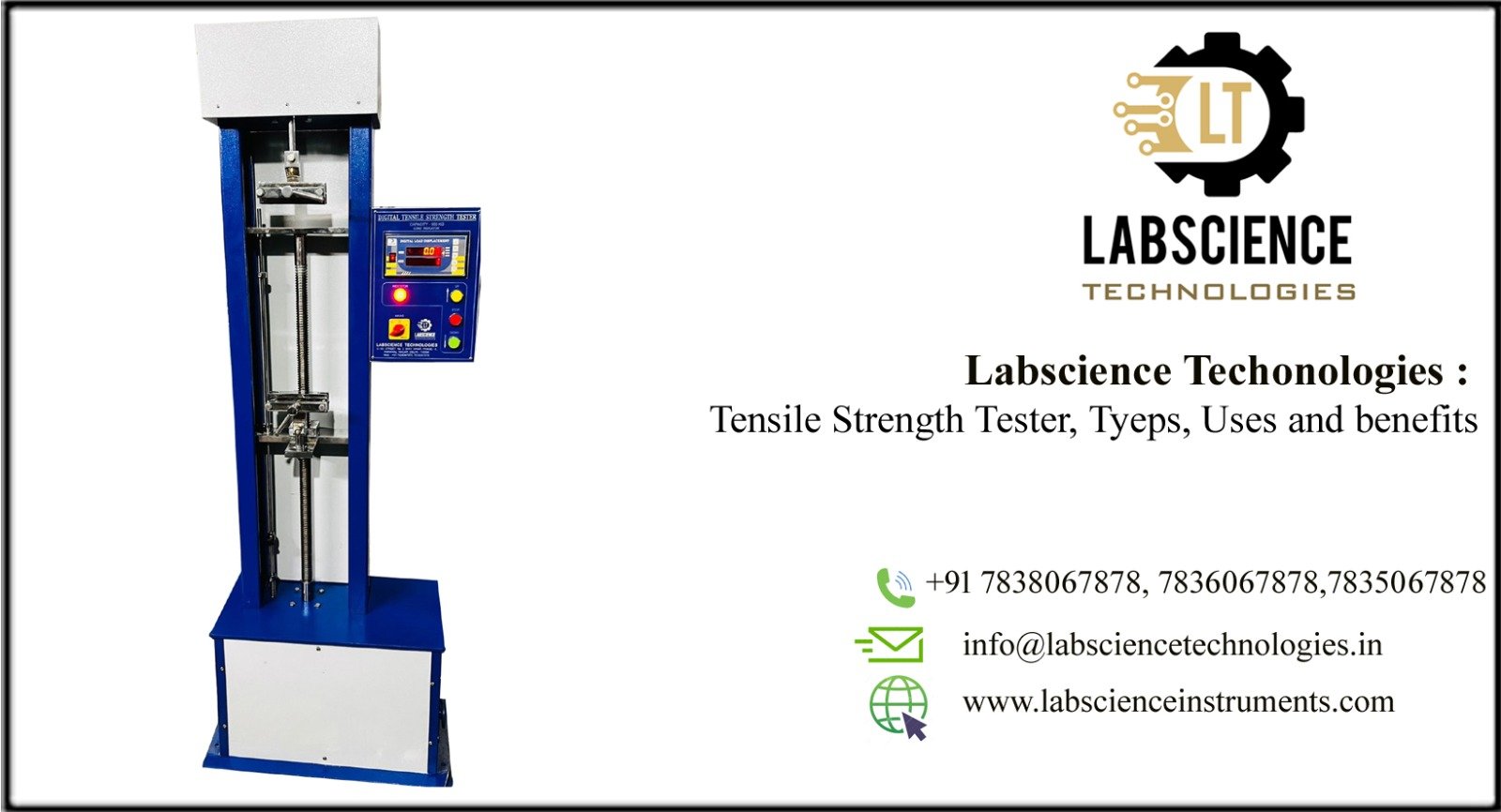Labscience: Tensile Testing Machine
A Tensile Testing Machine is a crucial device used to measure the tensile strength, elongation, and mechanical properties of materials such as metals, plastics, textiles, and rubber. It plays a key role in industries like manufacturing, aerospace, automotive, and construction, where understanding material behavior under stress is essential for quality control and product development.
The machine works by holding a sample between two clamps and applying a controlled, increasing tensile force until the material breaks. During the test, the machine measures the force and the material’s elongation, providing valuable data on its tensile strength, elasticity, yield point, and break point. This information is critical for determining if the material meets the required performance standards.
Modern Tensile Testing Machines are equipped with advanced features like digital displays, high-precision load cells, and customizable testing parameters, allowing for accurate and repeatable results. Automated data collection and analysis ensure efficiency and reduce human error, making it easier for engineers and quality control professionals to assess material properties.
The machine’s ability to test a wide variety of materials under different conditions makes it an essential tool for research, development, and quality assurance. It helps manufacturers ensure that their products are safe, durable, and compliant with industry standards.
The Tensile Testing Machine is equipped with advanced features designed to deliver precise and reliable testing of material properties. Here are its key features:
High-Precision Load Cells: The machine is built with high-precision load cells that accurately measure the force applied during testing, ensuring reliable data on tensile strength, elongation, and yield points. This accuracy is crucial for consistent results in quality control and research.
Digital Display: A user-friendly digital display provides real-time data on test parameters, including force, elongation, and breaking point. This enables easy monitoring of the test process and instant access to critical data.
Customizable Test Parameters: The machine allows users to adjust testing parameters such as speed, force range, and elongation limits. This flexibility enables testing of various materials, from soft plastics to high-strength metals, and helps meet specific testing standards.
Automated Data Collection: Integrated software automatically records and stores test results, reducing human error and ensuring accurate data analysis. This feature enhances productivity by making it easier to generate reports and conduct further analysis.
Versatile Clamping System: The machine is equipped with adjustable clamps that can accommodate different sample sizes and shapes, making it suitable for testing a wide variety of materials.
Durable Construction: Built with industrial-grade materials, the Tensile Testing Machine is designed for long-term use, providing consistent performance even in demanding testing environments.
These features make the Tensile Testing Machine an essential tool for precise material testing across industries.
The Tensile Testing Machine is engineered for accurate testing of material properties, making it indispensable for industries like manufacturing, aerospace, and construction. Here are the key specifications:
Load Capacity: The machine offers a wide range of load capacities, typically from 1 kN to 100 kN, making it suitable for testing soft materials like plastics to high-strength metals and composites.
Load Cell Accuracy: Featuring precision load cells with an accuracy of ±0.5% or better, the machine ensures reliable measurement of tensile forces, yielding consistent data on material strength and elongation.
Test Speed: It provides variable testing speeds, usually ranging from 0.01 mm/min to 500 mm/min, allowing for flexibility in testing different materials and compliance with international standards such as ASTM and ISO.
Crosshead Travel: The machine offers generous crosshead travel distances, typically from 600 mm to 1200 mm, enabling testing of long or large specimens with ease.
Elongation Measurement: Equipped with an extensometer, the machine provides accurate elongation measurements, typically with a precision of ±1 mm, ensuring critical data for material deformation analysis.
Control Interface: A digital control panel allows easy customization of test parameters like force, speed, and elongation limits, making operation straightforward.
Data Output and Storage: It comes with USB and RS-232 ports for easy data transfer and integration with computer systems for storing, analyzing, and generating reports.
Power Supply: Operates on standard electrical inputs, typically 220V/110V, suitable for most lab and industrial environments.
These specifications make the Tensile Testing Machine versatile, reliable, and suitable for a wide range of material testing applications.
Kindly fill this form to demand a call-back to from our client support boss with esteeming and details.
Call our Specialists for the Best Deal
+91 7838067878
Call Now
+91 7838067878

